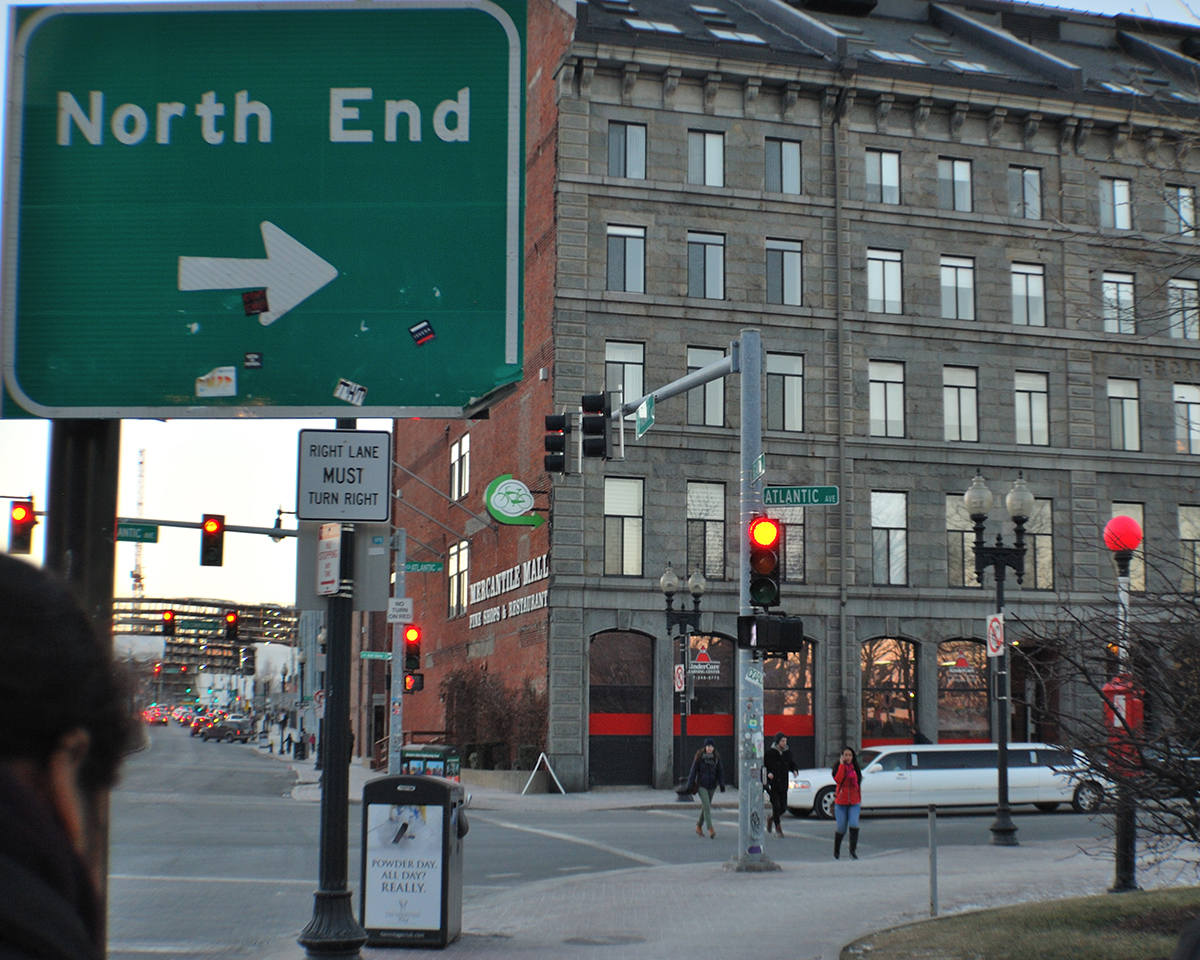Boston’s Parking Wars: North End Edition

North End BY CHRISTOPHER “RICE” VIA FLICKR/CREATIVE COMMONS
The North End is in a tizzy over a new citywide car sharing program that leases public parking spaces to private car sharing companies such as ZipCar and Enterprise.
Northendwaterfront.com reported in late October that some residents and neighborhood organizations were furious the city converted four on-street public parking spaces into car sharing spots. Some even went as far as to suggest that the city did it at night in order to avoid creating a scene during the day.
“Parking is already extremely difficult for North End residents. Even the elimination of four spots has a significant impact on the quality of life of North End residents. I am confused as to how the City can eliminate resident spots by giving them to a private corporation for profit without going through a public hearing process,” Ryan Kenny, Chair of the NEWNC Traffic and Parking Committee, told Northendwaterfront.com.
South Boston has reacted in a similar manner to the installation of new car sharing parking spaces.
The North End, like South Boston, is a dense neighborhood that’s not really built for cars, so the installation of car sharing should help reduce congestion there. But even evidence of how car sharing programs improve the quality of life by reducing air pollution and congestion doesn’t ease the concerns of some car-loving residents. Many residents are as upset over the lack of hearings about the new spaces as they are about the hearings themselves.
“The more you take from the people that live here, the worse it gets,” North End resident Nick Russolillo told the Boston Herald.
Studies show that a single car share vehicle can replace 15 privately owned cars in a neighborhood and make parking easier, not harder. Of course, four parking spots with corporate logos are easier to see and complain about than the absence of 60 or more cars in the neighborhood, which is the number of cars the city’s pilot program of four public parking spaces in the North End could eliminate in 18 months.
Still, the North End, like South Boston (and the whole city),is going through some major changes. Long-time residents are cashing in on their homes and moving away, leaving new, and often young, outsiders to take their place.
Mayor Marty Walsh defended the program in an interview with the Boston Herald.
“The intent behind this car sharing is to actually free up spaces where people don’t have to own cars and there’s an opportunity for them to have a car in their neighborhood and car share,” said Walsh.

